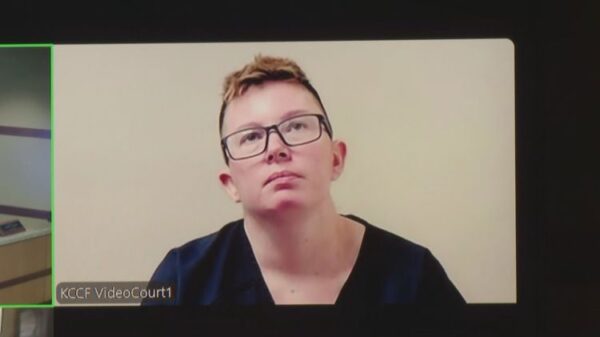UPDATE: A San Mateo County judge has just ordered the partial release of financial records linked to the corruption investigation of Sheriff Christina Corpus led by retired Judge LaDoris Cordell. This decision, announced on August 29, 2023, comes amid ongoing scrutiny of Corpus, who faces removal proceedings after a special election granted the board new powers to act against her.
The judge’s ruling mandates the county to disclose essential documents, including the contract with Cordell and related compensation materials such as invoices and timesheets. However, certain witness identities will remain confidential. As of now, the full extent of the records remains sealed, raising questions about transparency in the ongoing investigation.
In April, Corpus’ legal team initiated a lawsuit demanding the release of these documents, following a public records request that the county denied, citing attorney-client privilege. Judge Jeffrey Finigan criticized this stance, stating, “It is hard to imagine what different/additional information could exist in her retainer agreement” that justifies withholding public information.
The investigation has sparked widespread calls for the sheriff’s resignation, culminating in a special election in March that empowered the board to remove her until her term ends in 2028. The financial implications of this probe are significant, with the county previously reporting nearly $200,000 in expenditures for Cordell’s investigation at a rate of $750 an hour. Details regarding the total costs incurred by taxpayers—including legal fees and investigative expenses—remain undisclosed as the county continues to invoke privilege.
This ruling is a pivotal moment for transparency advocates. Matthew Frauenfeld, Corpus’ attorney, welcomed the decision, labeling the county’s previous claims of privilege as an overreach. “Privilege cannot be used as both a sword and a shield,” Frauenfeld stated, emphasizing the public’s right to access these records.
Despite the court’s decision, the county is still deliberating its next steps, including a potential appeal, according to spokesperson Effie Milionis Verducci. The ongoing legal battles reflect a broader struggle over accountability in local governance.
This investigation and its implications extend beyond mere financial records. If removed, Corpus would become the first sheriff in California to be ousted by a board of supervisors, setting a significant precedent. The board has 30 days to appoint a replacement or call for a special election if Corpus is removed.
As the clock ticks on this urgent matter, all eyes will remain on the actions of the county board and the forthcoming advisory opinion from retired Judge James Emerson, who presided over the removal hearings. With the sheriff’s future hanging in the balance, the stakes are high, and the public’s demand for transparency grows louder by the day.





































































